HS-ESS2-3
Develop a model based on evidence of Earth's interior to describe the cycling of matter by thermal convection.
-
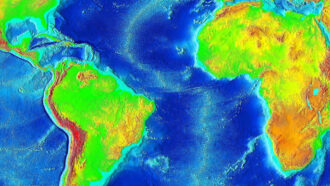 Earth
EarthRock rising from below the Atlantic may drive continents apart
Molten rock rising from the deep mantle at the Mid-Atlantic Ridge may drive plate tectonics there more than had been expected.
-
 Chemistry
ChemistryExtreme pressure? Diamonds can take it
Diamond retains its structure even at extreme pressures, which could reveal how carbon behaves in the cores of some exoplanets.
-
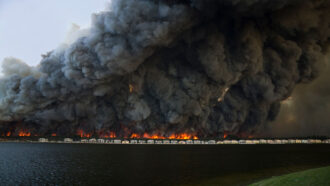 Earth
EarthExplainer: What are aerosols?
We may not see them, but tiny particles and droplets cloud the air, affecting its properties. Some may be pollutants, others all-natural products.
-
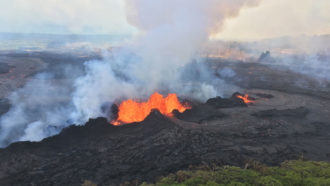 Earth
EarthDid rain put the Kilauea volcano’s lava-making into overdrive?
Scientists share strongly conflicting opinions about why Hawaii’s Kilauea volcano spewed an overabundance of lava in 2018.
By Megan Sever -
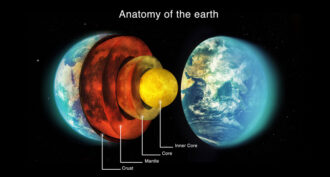 Earth
EarthExplainer: Earth — layer by layer
Explore the sizzling heat, unimaginable pressures — and some surprise diamonds — that sit beneath our feet. This is the side of Earth that you can’t see.
By Beth Geiger -
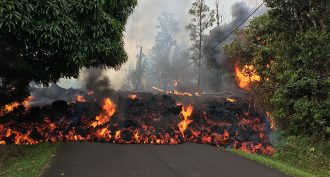 Earth
EarthHow long will Kilauea’s new eruption last?
A government volcano expert answers burning questions about the ongoing Kilauea eruption.
-
 Physics
PhysicsExplainer: What is thundersnow?
Wacky weather produced lots of thundersnow during New England’s recent winter storms. Some scientists now suspect Mother Nature got some human help.
-
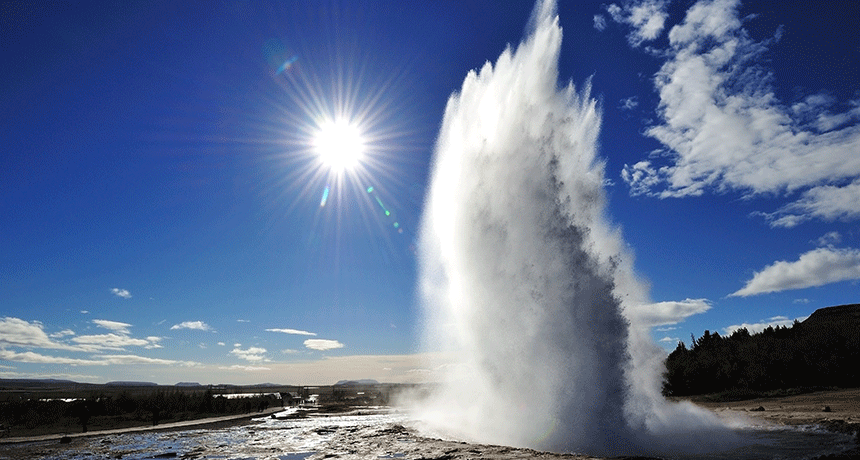 Earth
EarthTo study a geyser, these teens built their own
Fascinated by geysers but unable to see one? These teens decided to build their own. It allowed them to study how temperature and pressure make the water spew into a founta.
-
 Earth
EarthHelium discovery blows away shortage worries
Fears that the world may soon run out of helium have been set aside for now by the finding of a huge reservoir of the gas in East Africa.
-
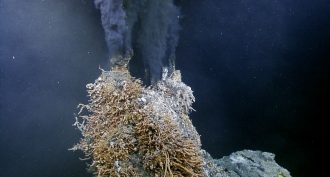 Earth
EarthSeafloor hosts surprising number of deep-sea vents
A new sensor detects changes in seawater chemistry and finds far more ecosystem-supporting seafloor vents than scientists had believed were out there.
-
 Earth
EarthCool Jobs: Mapping the unknown
Scientists find different ways of exploring places humans will never visit — and drawing maps to help us better understand such mysterious places.
By Ilima Loomis -
 Earth
EarthMystery ‘earmuffs’ sit deep inside Earth
Two vast blobs in Earth’s lower mantle could result from a “trainwreck” of ancient colliding tectonic plates.
By Beth Geiger